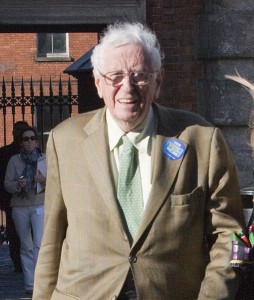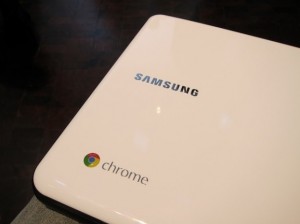 It’s not often that one feels genuine sadness when a politician dies, but I felt it this morning when the news came through that Garret Fitzgerald died last night. He was one of the very few Irish politicians who was a genuine intellectual — a fact often illustrated by the (possibly apocryphal) story of him emerging from an exhausting all-night EU negotiation session and expressing the view that while the resulting deal might be ok in practice “the question is whether it works in theory”.
It’s not often that one feels genuine sadness when a politician dies, but I felt it this morning when the news came through that Garret Fitzgerald died last night. He was one of the very few Irish politicians who was a genuine intellectual — a fact often illustrated by the (possibly apocryphal) story of him emerging from an exhausting all-night EU negotiation session and expressing the view that while the resulting deal might be ok in practice “the question is whether it works in theory”.
He was for many years an academic at University College, Dublin and benefited from an unusual clause in the terms of employment of lecturers in the National University of Ireland (of which UCD was a constituent college) which gave staff unpaid leave of absence to hold public office while keeping their academic posts open. So even when he was Foreign Minister or Taoiseach he always had the possibility of returning to academic life. Perhaps that’s what gave him such a sublimely distracted look.
He was a mass of contradictions: the son of two heartland Irish nationalists, he ought to have been a visceral anti-Brit. But he was exactly the opposite — which perhaps helps to explain why he was able to overcome the damage done to Anglo-Irish relations by the antagonism between Charlie Haughey and Margaret Thatcher. In that sense — as former President Mary Robinson pointed out on Radio 4 this morning — there was a strange resonance in the fact that he passed away on the night when the British monarch was making a speech down the road in Dublin Castle, at a banquet to which he had been invited.
Searching for images of him this morning, I was struck by this one (from Wikipedia), in which he looks eerily like my maternal grandfather — who was a devout Fianna Fail supporter and probably disapproved of Garret (who led the opposing political tribe, Fine Gael). The nicest personal memory I have of him comes from a day when I was heading for Davey Byrne’s pub off Grafton Street in Dublin. I suddenly saw Garret walking towards me, accompanied by one of his grandchildren, a young girl who was holding his hand and talking animatedly to him. What was striking was the fact that he was entirely engrossed in what she was saying, and paying no attention whatsoever to what was happening on the street. It was a lovely encapsulation of the fact that while he may have been a statesman and a world figure, at that moment he was, purely and simply, a loved and loving grandfather. May he rest in peace.
LATER: Nice round-up of tributes on Politico. And the LRB has put up a list of the articles he wrote for the magazine.






